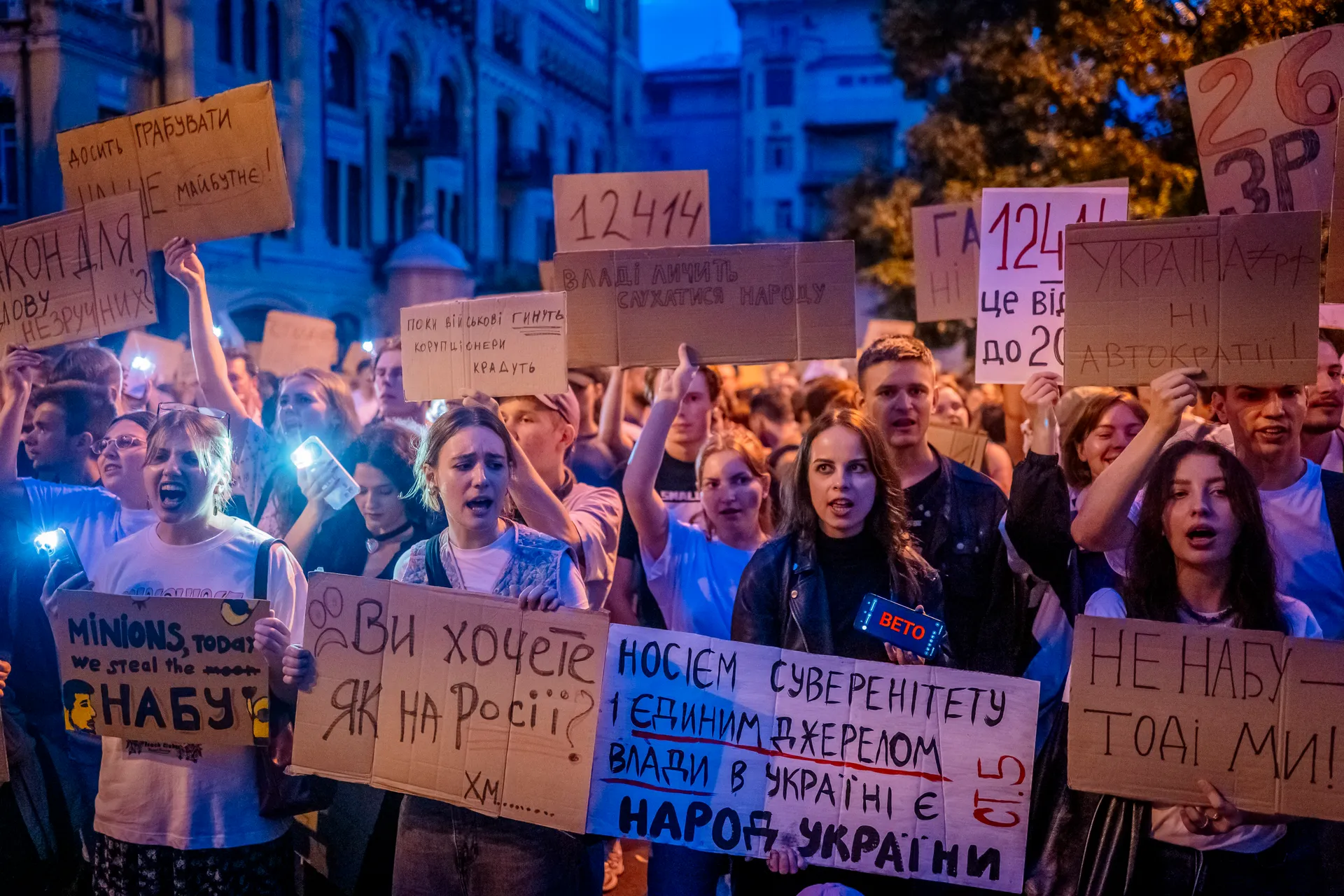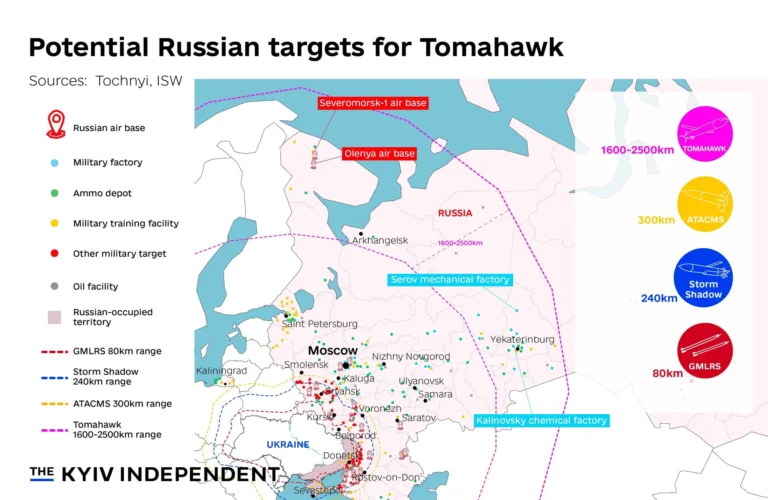
Across Eastern Europe, a new political front is opening, not against Russia, but inside the fragile democracies defending themselves from it.
In Ukraine, protests are once again erupting in the streets of Kyiv. But this time, they’re not against Russian tanks, they’re directed at President Volodymyr Zelensky’s government. After over three years of resisting a genocidal invasion, Ukrainians are now warning: the fight for freedom abroad is being undermined by a quiet erosion of democracy at home.
And in Moldova, just to the southwest, voters are bracing for what may be a defining election in September, one that could either cement the country’s path to the European Union or hand influence back to Moscow.
Zelensky’s Crackdown Sparks Backlash
Zelensky is still overwhelmingly trusted by the Ukrainian people, with over 60% support according to recent polls. His leadership during wartime has earned him praise both at home and abroad. But beneath the surface, his increasing grip on power is drawing serious criticism.
The most recent controversy began when Zelensky signed a law abruptly placing Ukraine’s independent anti-corruption bodies, the National Anti-Corruption Bureau (NABU) and the Special Anti-Corruption Prosecutor’s Office (SAPO), under the control of the Prosecutor General, a political appointee. The move triggered mass protests, fierce backlash from civil society, and an immediate freeze on €1.5 billion in non-military EU support.
Under pressure from both the Ukrainian people and EU leaders, Zelensky backtracked within days, submitting new legislation to restore the institutions’ independence. But the damage was done.
“A decade of anti-corruption reforms was undone in hours,” said Elena Davlikanova of the Center for European Policy Analysis.
Europe’s Patience Wears Thin
European Commission President Ursula von der Leyen was blunt: Ukraine must preserve independent anti-corruption institutions, they are the “cornerstones of the rule of law” and a key condition for EU membership talks. Without them, Ukraine risks losing financial aid, trust, and momentum toward European integration.
The timing could hardly be worse. Ukraine had just fulfilled the criteria for the first EU accession cluster. Hungarian Prime Minister Viktor Orbán, Moscow’s most loyal friend in the EU, now has more political ammunition to delay or sabotage Ukraine’s membership bid.
“Trust has been damaged,” said Mattia Nelles, director of the German-Ukrainian Bureau. “Even if reversed, these stepbacks embolden Ukraine’s enemies.”
The concern isn’t only foreign. Inside Ukraine, critics warn of creeping autocracy. Journalists and NGOs report growing centralization of power under Zelensky’s chief of staff Andriy Yermak, who now wields vast behind-the-scenes influence, even over battlefield operations, according to some officials.
Opposition lawmakers and civic activists, many with spouses fighting at the front, are furious. One protester summed it up bitterly: “We’ve had two Maidan revolutions. Why does it always feel like we have to start over?”
Moldova’s Democratic Crossroads
Just as Ukraine wrestles with democratic fatigue in wartime, Moldova faces a pivotal test of its own. Pro-European President Maia Sandu warned this week that the country’s future lies entirely in the hands of voters.
“If our pro-European party doesn’t win a majority,” she said, “we will lose everything: democracy, EU support, and our future.”
Sandu’s Party of Action and Solidarity (PAS) is polling ahead of the September parliamentary elections, but the risk of a coalition dominated by pro-Russian factions looms large. Any such shift would derail Moldova’s EU ambitions and push the country back into Moscow’s orbit, a fate many Moldovans fear, especially after Russia’s ongoing brutal war in neighboring Ukraine.
Sandu is clear: her goal is not full EU membership by 2028, but to finish accession talks by then, a historic milestone for a country long caught between East and West.
The Fight for Democracy Isn’t Over
For Ukrainians, Moldovans, and their European partners, the lesson is sobering: democracy doesn’t just die with tanks in the streets. It can be chipped away, law by law, appointee by appointee, until what remains is no longer worth defending.
Yes, wartime demands hard choices. But the values these countries are fighting for, transparency, independence, self-determination, must survive the war if victory is to mean anything.
Now more than ever, civil society, watchdogs, and ordinary citizens are speaking out. From the protestors in Kyiv holding flashlights to the Moldovan voters preparing for September, the message is clear:
The fight for freedom isn’t only on the battlefield. It’s in the institutions, in the press, and at the ballot box.
If you care about the future of democracy in Europe’s frontline states, consider supporting independent journalism and civic engagement. You can buy me a coffee to help keep this work going.
💙💛 Slava Ukraini. Vivat Moldova.




